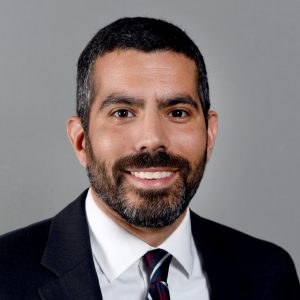Mikhail Chester

Associate Professor, Arizona State University Civil, Environmental, & Sustainable Engineering School of Sustainable Engineering & the Built Environment
Graduate Faculty, School of Sustainability
Affiliate Faculty, Global Security Initiative
Related Items:
Plotting California’s most vulnerable roads post-wildfire (September 2020)
Vulnerability of California Roadways to Post-Wildfire Debris Flows (July 2020)
Visiting scholar has eyes on the road ― literally ― in search of wildfire impacts (September 2019)
Biography:
Mikhail Chester is leading research efforts to develop an understanding of how urban systems have been deployed, frameworks for assessing their energy and environmental impacts, and strategies for transitioning infrastructure systems for twenty-first century needs. His goal is to develop the science for understanding how embedded infrastructure design enables the emergent behaviors that we often consider to be unsustainable, and for analyzing and breaking path dependencies that will aid in transitioning to lower energy and environmental impact futures.
His graduate work through 2008 largely focused on transportation infrastructure and since then he has focused more broadly on the interface of infrastructure and urbanization processes. Approximately half of his work is focused on the assessment of transportation systems and the other half land use, water, and energy systems, including their interdependencies. He has begun studying the role that infrastructure plays in contributing to extreme heat events in the U.S. Southwest. His long-term research goals are to advance understanding of how urban infrastructure design should balance the life-cycle benefits and costs of integrated systems with sensitivity to social-equity, economic growth, and future climate-constraints.
He holds a Ph.D. in Civil and Environmental Engineering from University of California, Berkeley.
Welcome! We’re thrilled to have @ASU‘s @mikhailchester join us this academic year as a visiting scholar focusing on infrastructure vulnerabilities.
https://t.co/8DjzdmrCuv— UCLA ITS (@ucla_its) September 17, 2019
“Roads are not designed for the worsening conditions of climate change.” For the next year, @ucla_its @UCLALuskin will benefit from the research and expertise of climate adaptation specialist Mikhail Chester, associate professor of civil engineering @ASU https://t.co/9aFVZTubKB
— #UCLALuskin (@UCLALuskin) September 12, 2019
Traditionally infrastructure are designed as fail-safe. We argue that safe-to-fail design incorporates the consequences of failure in the design process, and will become ever more relevant with climate uncertainty. @DanEisenberg11 @RedmanCharles @URExSRN https://t.co/GduzTuHDkE pic.twitter.com/7mlDaTVTu8
— Mikhail Chester (@mikhailchester) August 8, 2019
This May 1 talk will delve into the challenges of delivering transportation services in the face of growing climate, technological, financial and political uncertainty. RSVP to hear @ASU prof @mikhailchester discuss | https://t.co/CKORS82bzN pic.twitter.com/fOiYpTIHik
— UCLA ITS (@ucla_its) April 22, 2019

